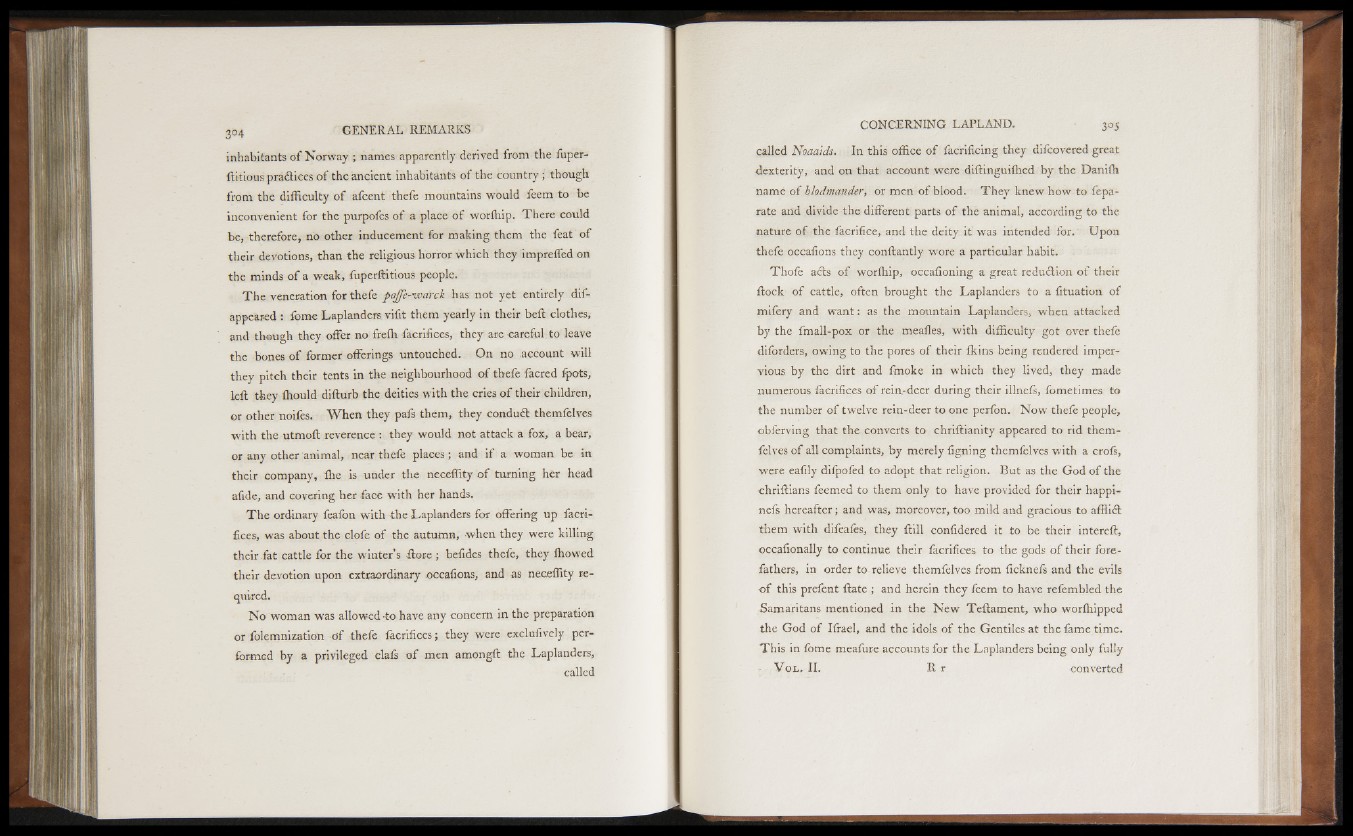
inhabitants of Norway ; names apparently derived from the fuper-
ftitious pradtices of the ancient inhabitants of the country ; though
from the difficulty of afcent thefe mountains would feem to be
inconvenient for the purpofes o f a place of worihip. There could
be, therefore, no other inducement for making them the feat of
their devotions, than the religious horror w hich they impreffed on
the minds of a weak, fuperftitious people.
T h e veneration for thefe pajfe-warck has not yet entirely dif-
appeared : feme Laplanders vifit them yearly in their beft clothes,
and though they offer no freih facrifices, they are careful to leave
the bones o f former offerings untouched. On no account will
they pitch their tents in the neighbourhood of thefe facred fpots,
left they ffiould difturb the deities with the cries of their children,
or other noifes. Wh en they pafs them, they conduct themfelves
with the utmoft reverence : they would not attack a fox, a bear,
or any other animal, near thefe places; and if a woman be in
their company, Ihe is under the neceffity o f turning her head
afide, and covering her face with her hands.
Th e ordinary feafon with th e Laplanders for offering up facrifices,
was about the dole of the autumn, when they were killing
their fat cattle for the winter’s ftore ; befides thefe, they lhowed
their devotion upon extraordinary occaiions, and as neceffity required.
No woman was allowed to have any concern in the preparation
or folemnization of thefe Iacrifices; they were exclufively performed
by a privileged clals of men amongft the Laplanders,
called
called Noaaids. In this office of facrificing they difcovered great
dexterity, and on that account were diftinguiihed by the Danilh
name of blodmander, or men of blood. They knew how to iepa-
rate and divide the different parts o f the animal, according to the
nature of the lacrifice, and the deity if was intended for. Upon
thefe occaiions they conftantly wore a particular habit.
Thofe adls o f worihip, occafioning a great reduction o f their
ftock of cattle, often brought the Laplanders to a fituation of
mifery and want: as the mountain Laplanders, when attacked
by the fmall-pox or the mealies, with difficulty got over thefe
diforders, owing to the pores of their {kins being rendered impervious
by the dirt and linoke in which they lived, they made
numerous facrifices of rein-deer during their illnefs, fornetimes to
the number o f twelve rein-deer to one perfon. Now thefe people,
obferving that the converts to chriftianity appeared to rid themfelves
o f all complaints, by merely figning themfelves with a crols,
were eafily dilpofed to adopt that religion. But as the God of the
chriftians feemed to them only to have provided for their happi-
nefs hereafter; and was, moreover, too mild and gracious to afflidt
them with difeafes, they ftill conlidered it to be their intereft,
occalionally to continue their facrifices to tire gods of their forefathers,
in order to-relieve themfelves from ficknels and the evils
o f this prefent ftate ; and herein they feem to have refembled the
Samaritans mentioned in the New Teftament, who worlhipped
the God of Ilrael, and the idols of the Gentiles at the fame time.
This in feme meafure accounts for the Laplanders being only fully
V o l . II. R r converted